Basin Street Blues
Basin Street Blues
New Orleans in the south of the United States is famous for many things. One is traditional jazz. Another is the regions in the city which are divided into areas known as Quarters. And in the French Quarter is a well-known area called Storyville, and its main thoroughfare is Basin Street, the basis of this song. Storyville became a red light district in the 1870s. So if you were heading down the mighty Mississippi to New Orleans and you ended up in Basin Street, there's a fair chance you'd hear some jazz and see a little of the local night life.
Basin Street Blues
"Basin Street Blues" is a song often performed by Dixieland jazz bands, written by Spencer Williams. The song was published in 1926 and made famous in a recording by Louis Armstrong in 1928. The famous verse with the lyric "Won't you come along with me/To the Mississippi..." was later added by Glenn Miller and Jack Teagarden.
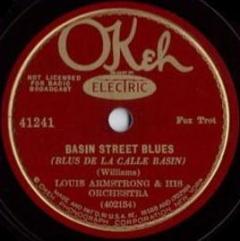
Basin Street Blues - Louis Armstrong, 1928
“Basin Street Blues” is one of the most instantly likable of all of Armstrong’s “hot five and seven” recordings. Although it’s tempo is slow, it’s one of the prettiest melodies of the sessions, and Louis plays it magnificently – indeed, he plays with such carefree abandon that it’s impossible not to be swept up in his enthusiasm. Armstrong’s vocal is magnificent, his “scat” singing taking a few listens to get a feeling for, but one the listener does, it becomes a style of incredible beauty. “Basin Street Blues” would become one of Armstrong’s signature numbers throughout his whole career, and this sublime performance is the reason why.
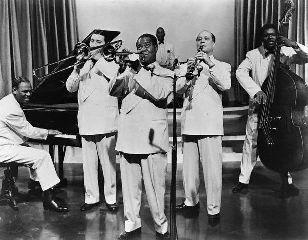
Louis Armstrong plays Basin Street Blues, 1959
Spencer Williams was one of the earliest black composers to shape jazz as popular music. Many of his songs including "Royal Garden Blues," "Everybody Loves My Baby" and "I Ain't Got Nobody" became anthems of the Jazz Age and the Swing Era—and remain standards today.
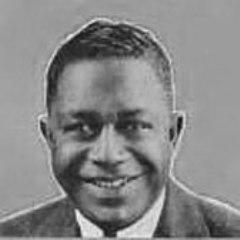
Spencer Williams
Spencer Williams was born in 1889 in New Orleans. Educated at St. Charles University, Williams worked in Chicago as a vocalist and pianist as early as 1907. There, he often performed with another pianist, composer, and bandleader: Clarence Williams—no relation. About the time of WWI, Spencer Williams began writing pop songs, such as "Squeeze Me," which he co-composed with Fats Waller.
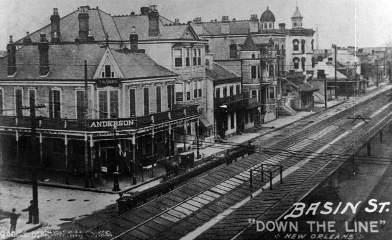
Basin Street, 1909
In 1925 Spencer Williams traveled to Paris and wrote songs for the voluptuous and exotic American expat, Josephine Baker, a star of the famed Follies Bergére. In 1930 Spencer made several recordings, singing and playing the piano with the highly regarded blues guitarists Teddy Bunn and Lonnie Johnson. In 1932 he vacationed in France with his friend Fats Waller. When Waller returned to the U.S., Williams moved to England, where he remained in residence until 1951, after which he made Sweden his home.
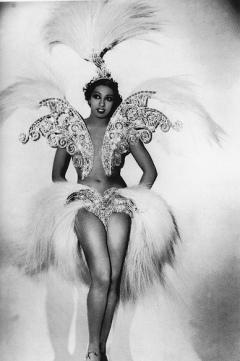
Josephine Baker
"Basin Street Blues," Williams' 1928 song, celebrates the center of New Orleans' nightlife, which took its name from the "basin" formed back of town from the excavation of building materials by the city's early inhabitants.
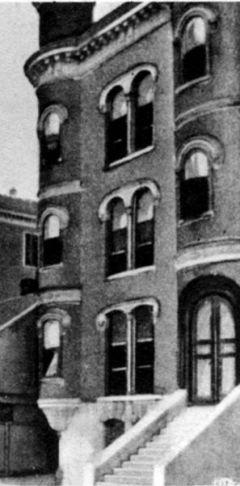
Mahogany Hall
Pianist and composer Spencer Williams titled this number after the street where he lived as a youngster with his aunt. But the house he lived in was no ordinary house: it was Mahogany Hall, probably the most famous brothel of Storyville, New Orleans’ red light district. And Spencer’s aunt was the notorious madam Lulu White.
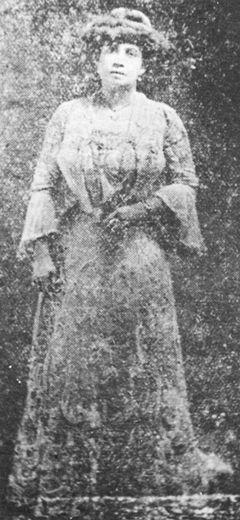
Madam Lulu White
The person with whom the tune was most often associated was trombonist/vocalist Jack Teagarden. Although he had recorded the number in 1929 with the Louisiana Rhythm Kings (a recording band with not one musician from Louisiana), it wasn’t until the session from February, 1931, with another recording band, the Charleston Chasers, that “Basin Street Blues” really made an impact.
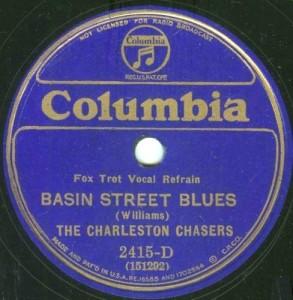
Basin Street Blues - Charleston Chasers, 1931
In the 1930s Esquire Magazine featured a number of articles on jazz and by the 1940s was heavily involved in the scene, publishing several yearbooks and running a reader’s poll. A recording from their All-Star concert of 1944 includes a unique version of “Basin Street Blues” featuring Louis Armstrong and Jack Teagarden reprising their vocal renditions.
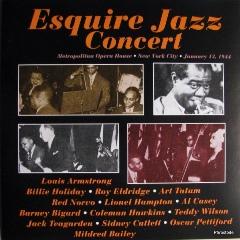
Esquire Jazz All Stars Concert, 1944
It is generally assumed that Spencer Williams wrote the lyrics. According to Jack Teagarden’s recollection, he and Glenn Miller were responsible for both the music and lyrics for the “new” verse and the lyrics for the chorus. The following, from Bill Crow’s Jazz Anecdotes, tells the real story:
“I was home in New York the evening before the “Basin Street Blues” record date when Glenn called me from his apartment in Jackson Heights. ‘Jack, I think we could do a better job if we could put together some lyrics and you could sing it. Want to come over and see what we can do?’...We finally finished the job sometime early in the morning. Next day, we cut the record. It’s been the most popular I’ve ever done! The lyrics were later included with the sheet music, but it never carried our names.”
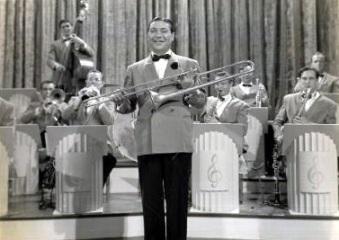
Jack Teagarden Orchestra, 1933
Jazz music was mainly played by black Americans in its early days and the lyrics of this song about "dark and light folk" was later replaced by the lyrics of "young and old folk" - a sign of the times, perhaps. In fact, the song has had several lyric changes over the years. But it must have great appeal, as recordings continue over the decades from such performers as Ella Fitzgerald and Liza Minnelli, and Jo Stafford and Frankie Laine recorded it as a duet.
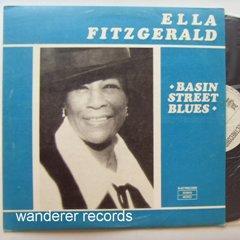
Ella Fitzgerald - Basin Street Blues
The buildings along Basin Street, slum properties and elegant mansions alike, were razed in the 1930s to make way for the Iberville Projects, which replaced the music haunts and speakeasies. However, there are a few scattered buildings still standing original from Louis Armstrong's time in the Quarter.
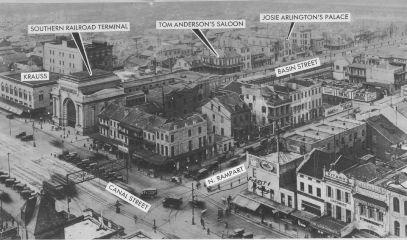
Storyville
Louis Armstrong recorded this song on December 4, 1928, and in 1933 with his orchestra, also in 1958 with the All Stars. The original lyrics to this song were very racist. Louis changed many words to make it more performable.
Basin Street Blues, lyrics
Won't you come and go with me Down that Mississippi We'll take a boat to the land of dreams Come along with me on, down to New Orleans Now the band's there to greet us Old friends will meet us Where all them folks goin to the St. Louis Cemetary meet Heaven on earth.... they call it Basin Street I'm tellin' ya, Basin Street...... is the street Where all them characters from the First street they meet New Orleans..... land of dreams you'll never miss them rice and beans Way down south in New Orleans They'll be huggin'.... and a kissin' That's what I been missin' And all that music....lord, if you just listen' New Orleans....I got them Basin Street Blues Now ain't you glad you went with me On down that Mississippi We took a boat to the land of dreams Heaven on earth...they call it Basin Street
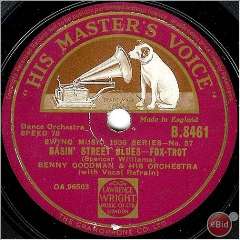
Basin Street Blues - Benny Goodman, 1934
Last Updated (Saturday, 20 June 2015 16:15)








